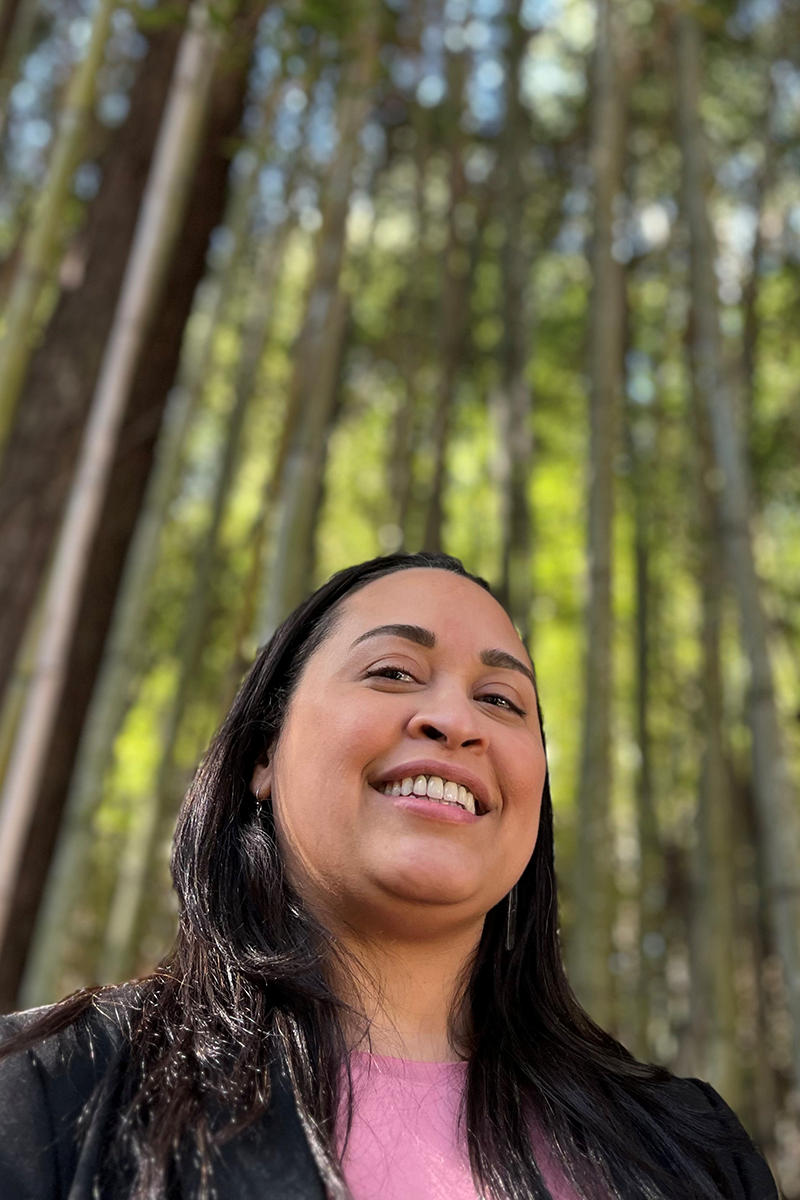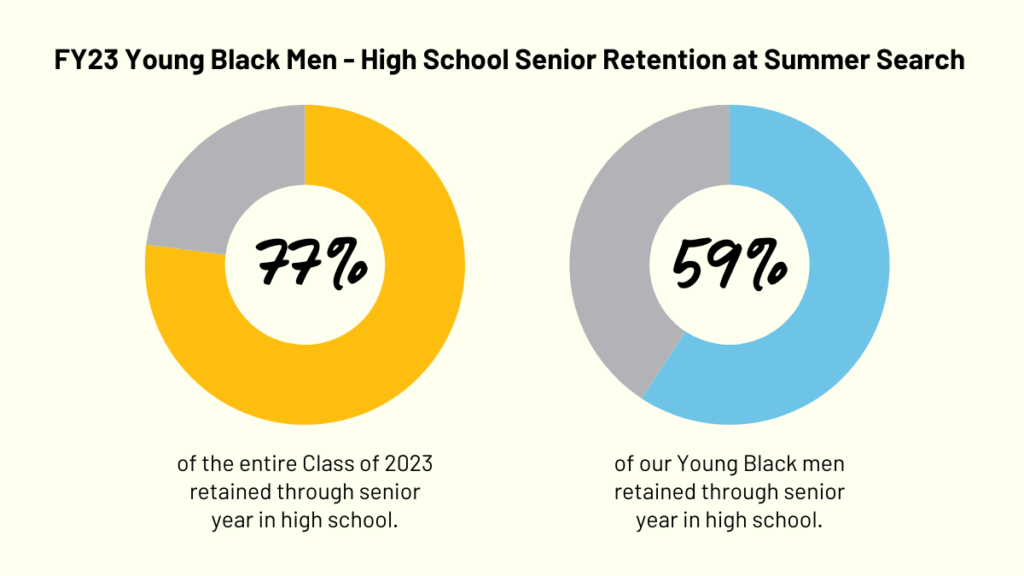February 29, 2024
[WATCH] #BehindTheData: Serving More Young Black Men, Part 2
Share

“It’s crucial to us that we are meeting the needs of ALL of the young people that we serve. It’s clear to us that we need to do something different to better serve our young Black men.”

Sherri Brooks, Summer Search’s Director of Learning, Evaluation, & Engagement.
Sherri’s back with round three of #BehindTheData!
For the past two weeks, Sherri has discussed some of the demographics of our Summer Searchers and examined how we’re striving to improve our recruitment of young Black men (male-identifying participants).
This week, Sherri will take a closer look at our engagement and retention efforts to better support young Black men once they are already enrolled in our program.
Serving More Young Black Men, Better
Overall, Summer Searchers are engaging and staying with us. In FY23:
- Our high school juniors and seniors received an average of 30 mentoring sessions throughout the year.
- 76% of our high school sophomores and juniors went on a summer experience.
- 77% of our high school seniors stay with us for multiple years (meaning from the time they entered our program, through the end of their senior year of high school).
However, as we found with our recruitment numbers, we are not reaching or engaging our young Black men the way we want to.

Unfortunately, our young Black men are engaging with our programming at lower rates than other Summer Searchers and they are not persisting through our high school programming like everyone else. When comparing those same metrics:
- The average number of mentoring sessions was 17% lower for young Black men.
- 59% of our high school seniors who are young Black men actually stay with our program from multiple years (vs. 74% young Black women and 77% retention of all races/genders, as mentioned above).
- Yet, on the more positive side, 74% of our young Black men went on summer experiences in their high school sophomore and junior years.
It’s crucial to us that we are meeting the needs of ALL of the young people that we serve. It’s clear to us that we need to do something different to better serve our young Black men.
So, this year we are connecting directly with our students. Our teams will be conducting focus groups with our young Black men to see what is working and what is not when it comes to engaging and retaining them in our program.
Tune in next week for our when Sherri will expand on why engagement and retention is important and how our Summer Searchers are ultimately succeeding and soaring in life. #BehindTheData
#BehindTheData Schedule:
- Thurs. 2/15: Who our Summer Searchers are.
- Thurs. 2/22: Who we hope to serve more.
- Thurs. 2/29 (Today!): How we hope to serve our young people better.
- Thurs. 3/7: How our participants are thriving.
Note: The presented data reflects Summer Search’s 2023 Fiscal Year (“FY23”), which is October 1, 2022 – September 30, 2023.
Methodology/Terminology: With care and consideration, Summer Search utilizes the gendered terms “young men” and “young women,” respectively, when referring to Summer Searchers who identify as male or female. Both “male/female participants” and “boys/girls” were considered in that process.
Our use of “males/females” excludes participants whose genders are not the same biological sex they were assigned at birth. Our use of “boys/girls” has culturally exclusionary implications that don’t respect the intersectional identities of the communities we serve. Peers in our field are aligning in common language references and the value we place on belonging.
With these considerations of social practice, we also want to ensure that our data narrative is reflective of the entire age range of Summer Searchers — from their prospective years in middle and high school to their years as part of the adult alumni community. Designating the referenced age range with “young” allows for that broader, objective representation.
For more information about the use of gendered language please reference other standards Summer Search considered in our decision.

